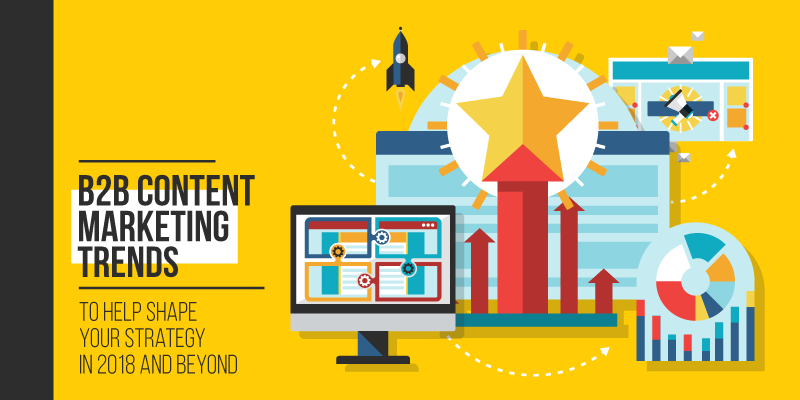The content marketing landscape is like a runaway train. It’s tough to keep up because everything moves so fast—thanks to search algorithms and the emergence of new technologies like marketing automation and big data. There are now more platforms than ever where consumers and audiences can be reached.
As a result of these emerging technologies and consumption behaviors, our attention spans have shortened significantly and the way we create, search, consume, and share content is changing. The lines between the various digital marketing disciplines are now becoming increasingly blurred, with each discipline overlapping another as campaigns become highly-integrated.
Adapting to Change
Consumers nowadays are smarter and more powerful than ever. All the information they need is just a tap or click away. They can research about the products and services they need before they decide to purchase. They can see other users’ reviews and experiences about a brand, and likewise, write reviews for brands they’ve interacted with.
As consumers become more powerful at influencing the success of companies, competition becomes tighter and fiercer. Brands need to fight for their own share of the market and clamor to get their audience’s attention. There’s too much going on. As such, marketers need to constantly determine what consumers want and need, and how to best deliver it to them. When consumer behavior changes, so does the marketing landscape.
Brands need the right marketing foresight that will enable them to develop and plan their strategies according to accurate predictions of future market developments. In short, you need to future-proof your content marketing strategy by staying abreast of the trends.
Noticeable Trends
What may help a brand succeed today may not be what’s relevant tomorrow. That’s why it’s important for marketers to remain vigilant in keeping up with the trends.
2017 is almost over, and 2018 is just around the corner. While there have been many changes in the content marketing landscape, there is one thing we know for certain—content marketing will become even more relevant in the coming year.
Yes, there will be changes in content marketing, but these changes will help B2B marketers reap tangible growth and deal with marketing ROI pressures. Here’s a comprehensive list of content marketing trends that will help shape your strategy for next year:

Content Marketing Adoption
Content marketing is no longer the new marketing trend. Brands and marketers are no longer questioning whether it’s worth investing in. It has already proven to increase brand awareness, engage prospective customers, improve brand loyalty, generate leads, and increase overall profit and revenue.
Companies are now asking “how” instead of “why.” The relevance and importance of digital content to the success of any brand or organization is obvious, so much so that in the survey produced by MarketingProfs and CMI, it was discovered that 91% of B2B businesses are currently using content marketing to fuel their success. Furthermore, the number of brands and marketers who focus on content marketing to build their audience grows by 18% every year.
The same survey also revealed that 77% of marketers claim to be successful in their content marketing efforts now compared to last year. This means that content marketing is maturing, and more businesses are adopting the right strategies to achieve their content marketing goals.
Another statistic that backs up the value of content is how content marketing leaders experience 7.8 times more unique website traffic than non-leaders or followers. If that’s not proof enough to get serious with content marketing, nothing will be.
B2B Buyer Insight
For B2B content marketing to be effective, marketers need to consider what buyers need and want above all. It’s no secret to marketers that a brand needs to establish itself as a thought leader to be considered credible and authoritative by consumers.
In the 2017 Content Preferences Survey Report by DemandGen, it was confirmed that 87% of B2B buyers give more credence to content from industry leaders.
The report further revealed that 47% of B2B buyers rely more on content for research and making purchase decisions, and that they consume at least three to five pieces of relevant content before initiating contact with a sales person.
Content Creation
According to a recent study, 78% of B2B marketers claim that higher quality of content and efficient content creation contributed to the increase in overall success of their content marketing campaign.
Case studies and white papers are still the top content format according to 78% of B2B buyers. Buyers also reported that they give more credence to peer reviews, user feedback, and third-party publications.
To increase the quality of content, B2B buyers recommend that content creators provide more benchmarking data and use research to support the information they provide while lessening any attempts at direct promotion.
Content Distribution and Promotion
When it comes to content distribution, it’s important for B2B marketers to be consistent in publishing content. A study reveals that 91% of the top business blogs today publish content at least once a week, while another recent survey shows that 58% of B2B marketers deliver content consistently.
Despite the fact that gated content such as case studies and e-books remain the top content formats for B2B marketers, 71% of B2B buyers want content that’s easier to access according to the DemandGen 2017 Content Preferences Survey Report.
However, 95% of buyers claim that they’re willing to provide their name, company, and email address in exchange for valuable content, while only a fourth of buyers indicated that they’re willing to provide their phone number. So, it’s better for marketers to stick to the basic information requirements when gating their content.
In terms of engagement and encouraging content sharing, the top channels to use would be LinkedIn, Twitter, and Facebook. For best results, ensure that your content is sharable on those top channels, no matter what other platforms you may choose for content distribution and promotion.
What This Means for B2B Businesses
Content marketing isn’t going anywhere in the near future. Yes, content and social media marketing may be converging, but as far as content is concerned, social media is just another platform where content can be distributed, promoted, and shared.
Whether your marketing team is big or small, what’s important is to develop a content strategy that enables your brand to consistently create and publish valuable content that attracts your target audience. This involves knowing who they are, what they’re interested in, and how they consume content.
Long-form content that’s backed by data is most relevant information for modern B2B buyers, and will remain so. That includes white papers, case studies, and e-books. To further compel your audience, make sure that your content is presented creatively so that it’s visually appealing to readers. Share and promote your content on LinkedIn, Twitter, and Facebook to generate as much leads as you can.
Bottom line, the content marketing landscape is rapidly evolving, so brands need to stress the importance of being flexible. When change is the only constant, being able to adapt quickly to serve the changing needs of your audience will do wonders for making your brand stand out from the crowd.






